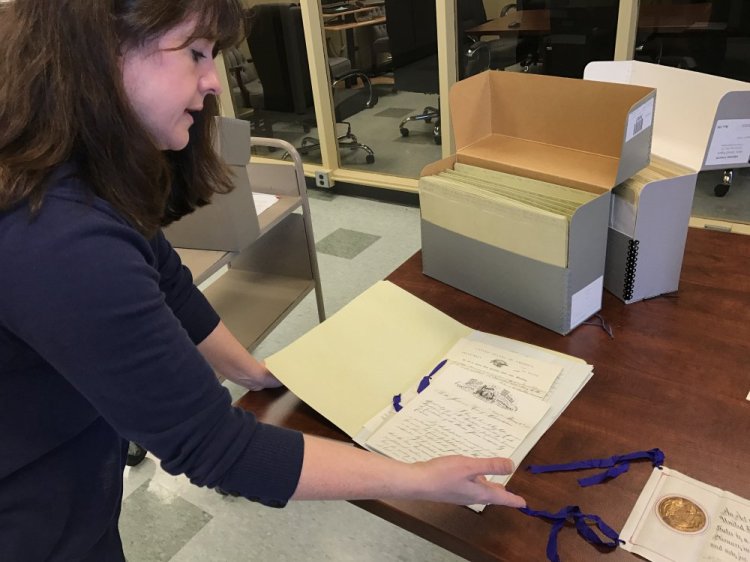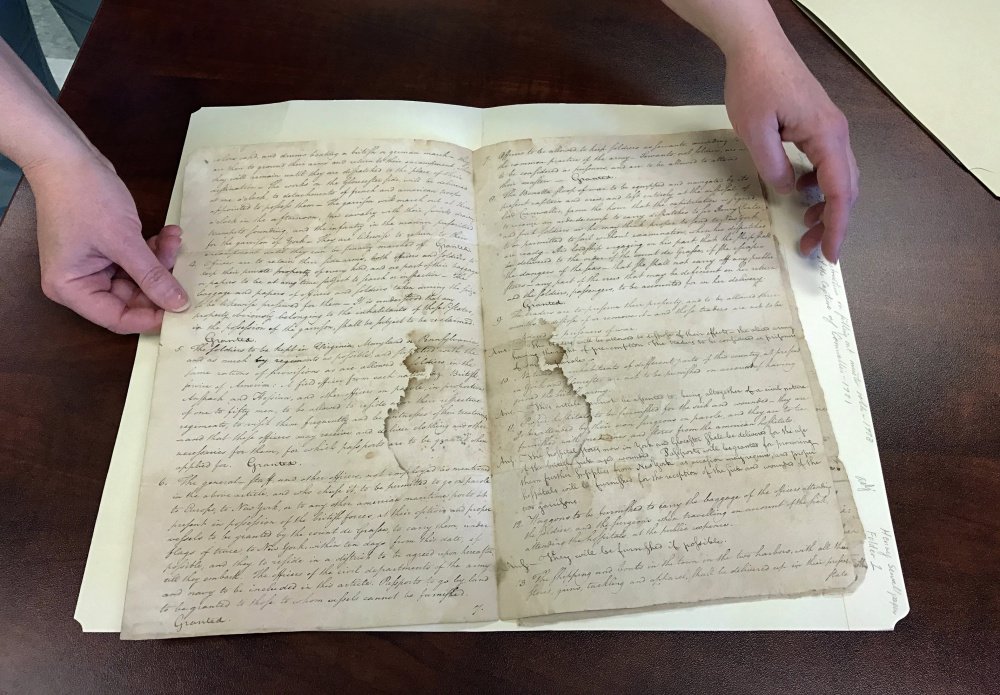AUGUSTA — Attention, history buffs: Maine archivists are looking for help transcribing hundreds of documents ranging from Civil War diaries and Revolutionary War records to letters from famous artists.
In an effort to make history more accessible and searchable to the public, the Maine State Archives and Maine State Library have launched a project in which volunteers transcribe the text from high-quality images of historic documents. Those transcriptions are then posted online along with the images, thereby allowing students, genealogical sleuths or researchers to find and read documents within the state’s vast collection without having to travel to Augusta.
The collection of projects available for transcription runs the gamut. It includes such major historical documents as the official paperwork seeking Maine’s ratification of the 13th Amendment abolishing slavery to documents of more local interest, including birth and death records from the Cranberry Isles dating back to the early 1800s. There are lists of Maine Civil War soldiers from hospitals throughout the states and official correspondence with the late Gov. Percival Baxter.
The Digital Maine Transcription Project was inspired by a similar effort launched by the Smithsonian Institution in 2013 to outsource the time-consuming transcription process to thousands of “digital volunteers.” During the past three-plus years, those volunteers have transcribed the text of more than 220,000 pages of ledgers, field notes and other scientific documents for Smithsonian.
“I was really struck by the tremendous response they had from all over the globe,” said Heather Moran, an archivist with Maine State Archives. “And I thought, we have a tremendous collection of records here but they are not very accessible unless you came in” to the state archives, which are located in the same building as the Maine State Museum in Augusta.
To date, staff from the state archives and the library have posted about 500 pages of digitized documents on the project’s website, www.digitalmaine.net/projects. But Moran said staff will continue adding new documents and collections as those posted are transcribed. And while only a small portion of the archives’ 95 million pages of records have been digitized, Moran said the transcription project could go on as long as there is interest from the public and documents to post.
“As we get new documents scanned, we will put them on the website and hopefully people will help us out,” Moran said Monday.
To participate, would-be helpers need only register with the website managing the transcription software. Staff from the state library and archives then review any transcriptions for accuracy or to address any questions before the final product is transferred to Digital Maine online archives.
One lengthy collection to be transcribed is the diary of Nathan Clark, a member of the famed 20th Maine Volunteers unit during the Civil War. There are documents from 1777 on the capture of a fugitive slave, more than 170 pages of birth and death records from the Cranberry Isles dating back to the early 1800s and collections of correspondences with author E.B. White and artist Dahlov Ipcar.
Another sizable collection includes nearly 200 pages of Gen. Henry Sewall’s rolls and musters from his militia book from between 1789 and 1804. The archives will also be seeking help transcribing a 1781 copy – also in Sewall’s collection – of the “Articles of Capitulation” that laid out British Gen. Charles Cornwallis’ terms of surrender to Gen. George Washington at the Battle of Yorktown ending the Revolutionary War.
“Spreading the work out to the public means that several people can each transcribe only a handful of pages and they will complete the work it would have taken our staffs maybe years to finish,” Kate Herbert, project manager and employee of both Maine State Archives and Maine State Library, said in a statement.
Kevin Miller can be contacted at 791-6312 or at:
Twitter: KevinMillerPPH
Send questions/comments to the editors.






Comments are no longer available on this story